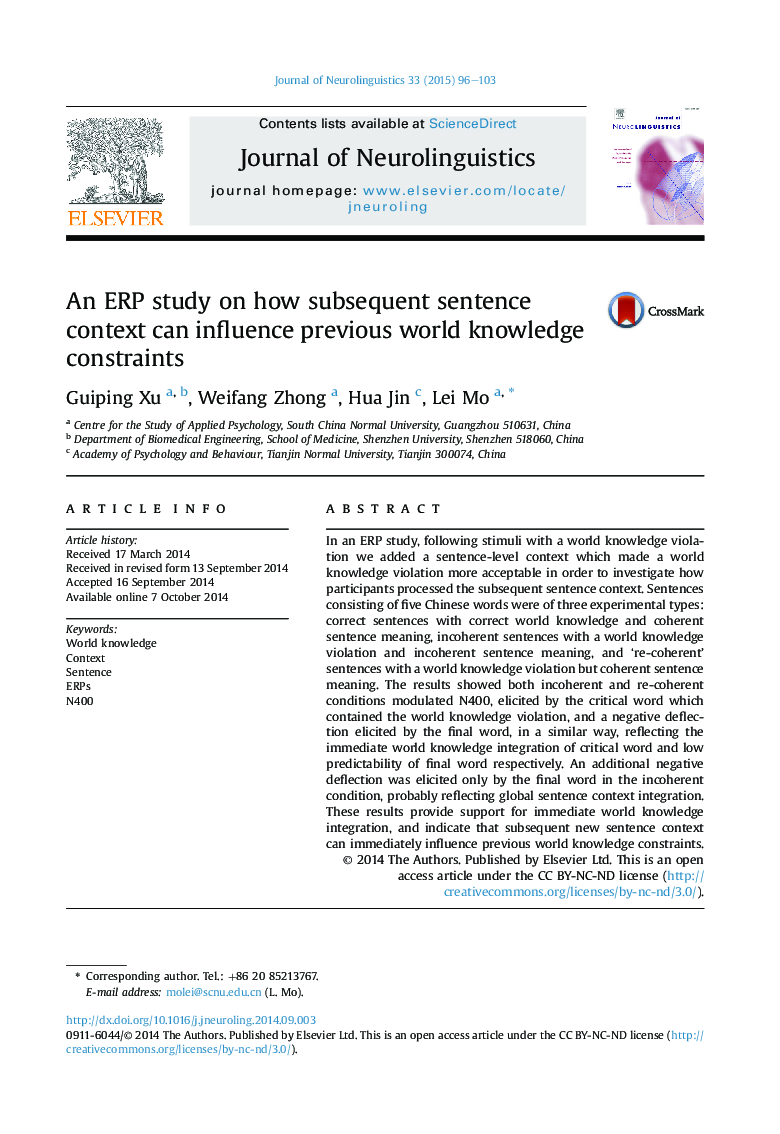| Article ID | Journal | Published Year | Pages | File Type |
|---|---|---|---|---|
| 7268854 | Journal of Neurolinguistics | 2015 | 8 Pages |
Abstract
In an ERP study, following stimuli with a world knowledge violation we added a sentence-level context which made a world knowledge violation more acceptable in order to investigate how participants processed the subsequent sentence context. Sentences consisting of five Chinese words were of three experimental types: correct sentences with correct world knowledge and coherent sentence meaning, incoherent sentences with a world knowledge violation and incoherent sentence meaning, and 're-coherent' sentences with a world knowledge violation but coherent sentence meaning. The results showed both incoherent and re-coherent conditions modulated N400, elicited by the critical word which contained the world knowledge violation, and a negative deflection elicited by the final word, in a similar way, reflecting the immediate world knowledge integration of critical word and low predictability of final word respectively. An additional negative deflection was elicited only by the final word in the incoherent condition, probably reflecting global sentence context integration. These results provide support for immediate world knowledge integration, and indicate that subsequent new sentence context can immediately influence previous world knowledge constraints.
Related Topics
Life Sciences
Neuroscience
Cognitive Neuroscience
Authors
Guiping Xu, Weifang Zhong, Hua Jin, Lei Mo,
